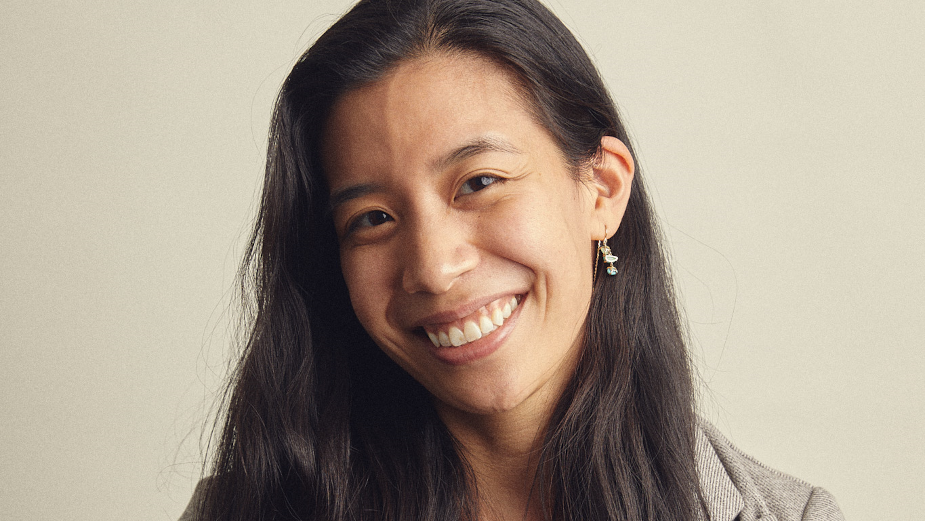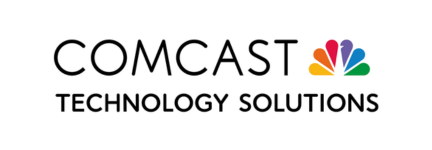
Production Line: Grounding Yourself in a Proactive Mindset with Constance Kaita

Constance is director of studio producers and associate partner at Conscious Minds Studios. Since 2021, she has led a team of integrated producers working across accounts including Nike, Apple, YouTube, and Jack in the Box. She has spent her career serving creative, operations, and production functions across various start-ups, which has given her insight into the end-to-end production process, as well as the opportunities to provide music supervision for a global brand campaign, write voiceover copy for a digital spot, manage small business and non-profit finances, and have a deep understanding of how many boxes of protein bars are needed to fuel a crew on a multi-day docustyle shoot.
LBB> Aside from covid-19, what have been the most disruptive forces to hit agency production in the past few years?
Constance> TikTok has greatly impacted how we think about agency production from start to finish. Many of our tried and true content strategy approaches for other social media platforms fundamentally differ from what performs well for a TikTok audience, so we have to maintain a sense of flexibility and humility to stay relevant. We have to recognise that while we’ve built a wealth of valuable knowledge throughout our careers, there’s still more to learn.
This comes hand-in-hand with embracing creator production and releasing control. In the days of more traditional production, I felt like my role as a producer was more cut-and-dry between keeping everything organised, on time, and under budget. Now, there’s a much more human aspect. The producers who prioritise fostering creator relationships, celebrate the ideas they bring, and trust their instincts for serving their audience are the ones who I think will find success in this evolving space.
LBB> A good producer should be able to produce for any medium, from film to events to digital. Do you agree or disagree with this statement? Why/why not?
Constance> Regardless of the medium, being a good producer means being able to take an idea and turn it into reality. It means asking the right questions to ensure you truly understand the creative vision, breaking down the big picture into a list of elements that need to be addressed, and – most importantly – being able to differentiate what you know from what you don’t know.
My first producing job was for a public television show where we interviewed creative thinkers and shared their perspectives on the world. As our audience grew, we wanted to start booking more high-profile talent – famous musicians, writers, choreographers, and visual artists – something I had zero experience in! So I decided to reach out to people who did this at the highest level: talent bookers for late-night shows. They shared the names of databases they used for celebrity contact information, explained who the right people on their teams to reach out to were, and even connected me with a couple of publicists with whom I ended up developing ongoing relationships.
Experiences like this helped me understand that being a good producer isn’t necessarily about possessing the skills or expertise related to a specific medium, especially since so much of this can be supplemented by experts. It’s about approaching projects with the right mindset and recognising when to bring in support.
LBB> And leading on from that, when it comes to building up your team at the agency, what’s your view on the balance of specialists vs generalists?
Constance> Building off the previous question – to me, the difference between specialists vs. generalists is hard skills vs. soft skills.
Specialists possess a lot of hard skills. They have technical expertise that can be incredibly valuable. Still, in an industry that changes as much as ours, it’s difficult to predict whether you’ll have a consistent flow of work in their relevant field. One year, clients might be asking for monthly studio photoshoots to power their digital ecosystems. The following year, they might ask for weekly creator content deliveries.
When building up my team, I’m looking more for people with soft skills transferable across different types of production. I’m looking for people who approach the work with an open mind and aren’t locked into an understanding of the way things are 'supposed' to be done because who knows – that might change in a year! I see generalists as having more longevity with a company, whereas specialists will follow the work that requires their expertise. And if I’m building up a team, I want to find people who will be here for the long run.
LBB> What’s your own pathway to production? When you started out, what sort of work were you producing and what lessons have stayed with you in that time?
Constance> Before I was in production, I was a classical musician. I started playing the piano when I was four and continued performing seriously until I graduated from conservatory. Although I didn’t end up pursuing a career as an artist, this experience left me with a deep appreciation for the creative process and a ton of discipline from all the years I’d spent in the practice room.
This led me to my first job at the public television show I mentioned earlier. It was a great introduction to production since I had insight into the whole process from end to end. I took notes for the initial pitch in the writer’s room, scheduled interviews in our studio, coordinated b-roll capture, and tracked all the segments in post.
What I wasn’t anticipating was all of the relationship-building that came after delivering each episode. Since we were an independently-produced show, we had to work closely with our distribution coordinator and station relations manager to get airtime on public television stations across the US. We attended conferences to market the show and worked with programming managers in key markets to get better time slots, on top of maintaining strong relationships with our sponsors because, at the end of the day, we were still operating as a non-profit.
It’s so easy to consider the work 'done' once the final assets go out the door. But through these experiences, I’ve come to value the importance of following the work beyond delivery to see how we can maximise the output of what we’ve made. After all, the value of the content isn’t always determined by the people who made it; it can be determined by the audience that receives it.
LBB> When working with a new partner or collaborator, how do you go about establishing trust?
Constance> Spark a dialogue! A sure fire way of losing trust is making assumptions, but an easy way to get ahead is to create a two-way communication channel early. Ask questions about their expertise, their processes, and what they’re looking for in this partnership. Then, share the same from your end. Be transparent about potential limitations or challenges, and open the door for follow-up questions.
LBB> When it comes to educating producers how does your agency like to approach this? (I know we’re always hearing about how much easier it is to educate or train oneself on tech etc, but what areas do you think producers can benefit from more directed or structured training?)
Constance> I can write process docs for days, but these only help producers to a certain extent. You’ll never find the answer to every question in a process doc, so I want to train producers to have the right approach to things.
For example, one of the main functions of a producer for any medium is communication. Producers often sit at the centre of information flow from one department to the next, and there are only so many parameters that you can set for them. I can write guidelines for what kind of messages should be communicated via Slack vs. email vs. text, but I can’t help them form these comms regularly. Instead, I like to empower producers with a set of questions such as:
- What does everyone else on my team need to know to get their work done?
- What is the best avenue of communication for this information so it’s received and understood immediately?
- How can I present solutions in a way that gets people’s buy-in quickly?
Equipping producers with a set of questions like this helps build up soft skills they can rely on, regardless of the type of production involved.
LBB> Clients’ thirst for content seems to be unquenchable - and they need content that’s fast and responsive! What’s the key to creating LOTS of stuff at SPEED - without sacrificing production values? Is it even possible?
Constance> The key to creating LOTS of stuff at SPEED is having a clear understanding of what’s a must-have vs. what’s a nice-to-have. When an ask for quick turn content comes in, we never assume from the outset that we’ll deliver something that’s not up to the desired standard. If that ends up being the case, it probably happened because somewhere in the production process, a conscious decision had to be made to sacrifice quality for the sake of output and/or timeliness.
One way to mitigate this is to start at the end. Reverse engineer the result that you want this content to have. What does success look like? And what fundamental elements are going to be crucial to that success? If you can find alignment on this from the start, you can keep those as your north star throughout the process. Everything else is just icing on the cake.
LBB> To what extent is production strategic - traditionally it’s the part that comes at the ‘end’ of the agency process, but it seems in many cases production is a valuable voice to have right up top - what are your thoughts/experiences of this?
Constance> When production is separated from the creative agency process, more conversations between the two sides end with 'No' instead of ending with 'Yes, and' or even 'Yes, but.' The agency will have a vision for how the creative will come to life, but production might have other ways in for the sake of time, resources, and budget. When I’ve seen this happen, it often leads to an 'us vs. them' dynamic and fosters a zero-sum mindset. One side’s gain is seen as the other side’s loss.
When production is included earlier in the process, though, the dynamic shifts to one of collaboration. When production has a voice up top, the visceral reaction isn’t one where suggestions are seen as divergent from the overall vision; they’re seen as playing a part in building it together.
LBB> What’s the most exciting thing about working in production right now?
Constance> One of the things I’m most excited about is being able to train AI assistants to become integrated into some of the more tedious production processes. The more we can get repetitive tasks like notetaking, scheduling, and file organisation automated by AI, the more we can shift our focus to the irreplicable human aspects of the work.
LBB> And what advice would you give to an aspiring agency producer?
Constance> Ground yourself in a proactive mindset vs. a passive one. If you’re ever unsure what to do, don’t wait for instructions or for someone to assign you tasks! Instead, look at the situation, think about what’s needed, and consider what actions can be taken to make things happen. If you’re always looking for ways to add value and speak up when they come to mind, you’ll soon become an indispensable part of any team.












